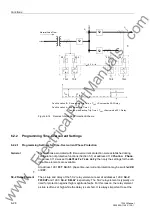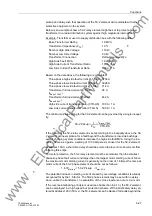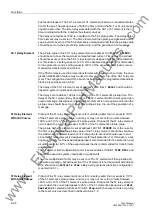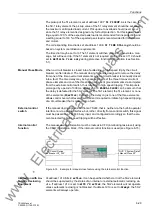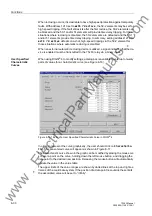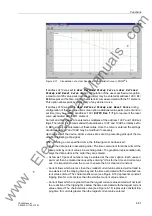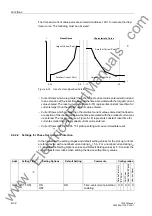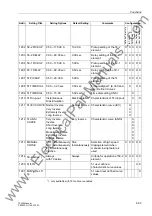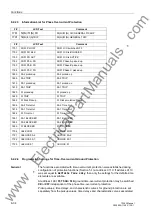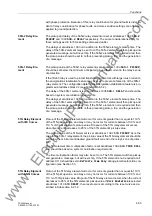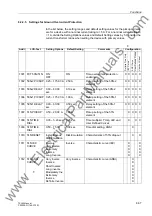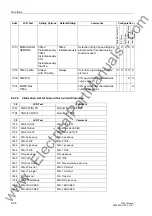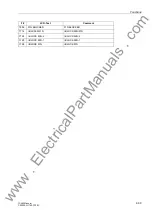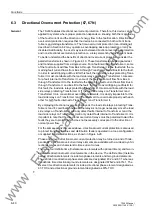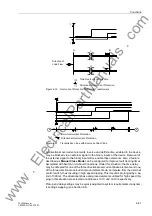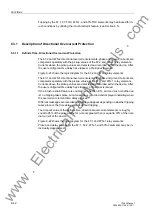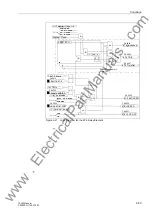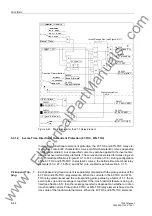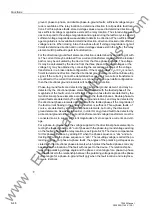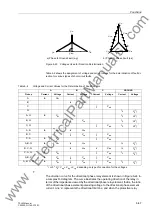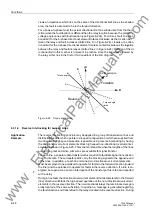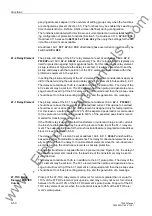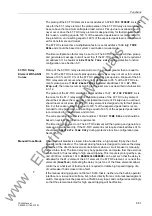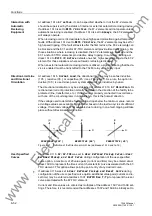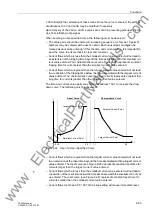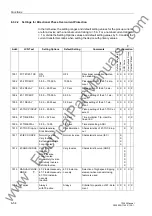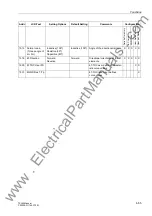
Functions
6-40
7SJ63 Manual
C53000-G1140-C120-1
6.3
Directional Overcurrent Protection (67, 67N)
General
The 7SJ63 features directional overcurrent protection. Therefore, this device can be
applied to systems where proper protection depends on knowing both the magnitude
of the fault current and the direction of energy flow to the fault location. Directional
overcurrent protection requires that the device be connected to both current trans-
formers and voltage transformers. The time-overcurrent protection (non-directional)
described in Section 6.2 may operate as overlapping back-up protection or may be
disabled. Additionally, the user may select between directional overcurrent protection
and non-directional overcurrent protection on a relay element by relay element basis.
To better understand the benefits of directional overcurrent protection, consider the
parallel transformers shown in Figure 6-19. These transformers are designated as I
and II and are supplied from a single source. For a fault internal to Transformer I, some
of the fault current will flow from Bus A through Transformer I to the fault while the re-
maining fault current flows from Bus A through Transformer II and Bus B to the fault.
In order to avoid tripping out Bus B for this fault, the load side relays protecting Trans-
former II must coordinate with the load side relays protecting Transformer I. Likewise,
for a fault internal to Transformer II, some of the fault current will flow from Bus A
through Transformer II to the fault while the remaining fault current flows from Bus A
through Transformer I and Bus B to the fault. In order to avoid tripping out Bus B for
this fault, the load side relays protecting Transformer I must coordinate with the load
side relays protecting Transformer II. If the load side relays on Transformer I and
Transformer II are conventional overcurrent elements, it is clearly impossible for the
load side relays on Transformer I and Transformer II to coordinate properly with each
other for both faults internal to Transformer I and Transformer II.
By employing directional overcurrent relays as the load side relays protecting Trans-
formers I and II, coordination between the relays is no longer necessary since the load
side relays on Transformer I will only detect faults internal to Transformer I and the
load side relays on Transformer II will only detect fault internal to Transformer II. It is
important to note that the directional overcurrent relays must be polarized toward the
faults they are to protect, which does not necessarily correspond to the direction of
normal power flow.
For the same reasons discussed above, directional overcurrent protection is also used
to protect transmission lines and distribution feeders operated in a loop configuration
or supplied from two directions, as shown in Figure 6-20.
Phase and ground directional overcurrent protection may be turned on and off inde-
pendently. Directional overcurrent relay elements are available with a wide array of di-
rectional curves and characteristic time-current curves.
There are four definite time (Instantaneous elements with optional timers) and two in-
verse time directional overcurrent elements in the device. The definite time (Instanta-
neous) directional elements include two phase elements and two ground elements.
The definite time directional phase elements are designated 67-2 and 67-1 whereas
the definite time directional ground elements are designated 67N-2 and 67N-1. The
inverse time directional elements include a directional phase element designated as
67-TOC and a directional ground element designated as 67N-TOC.
www
. ElectricalPartManuals
. com

